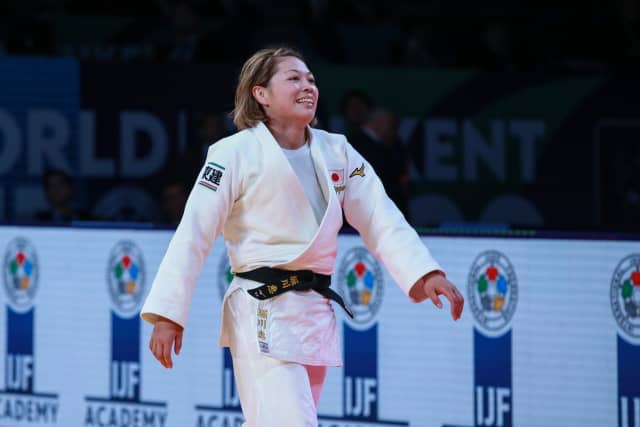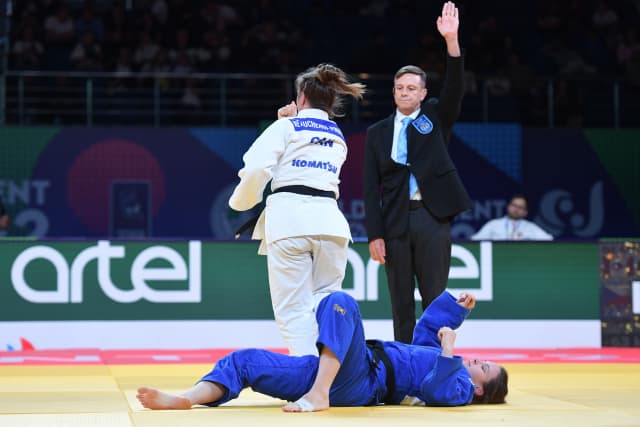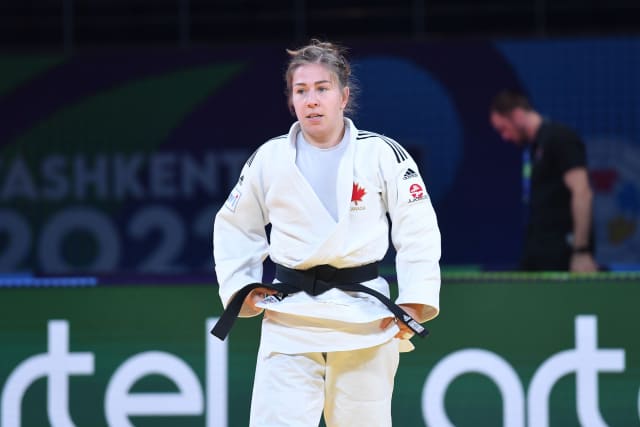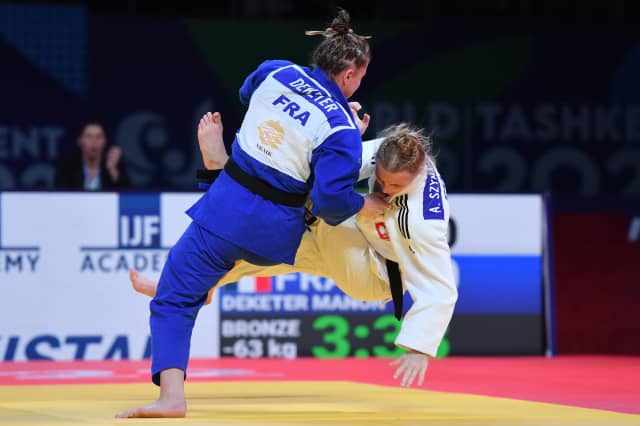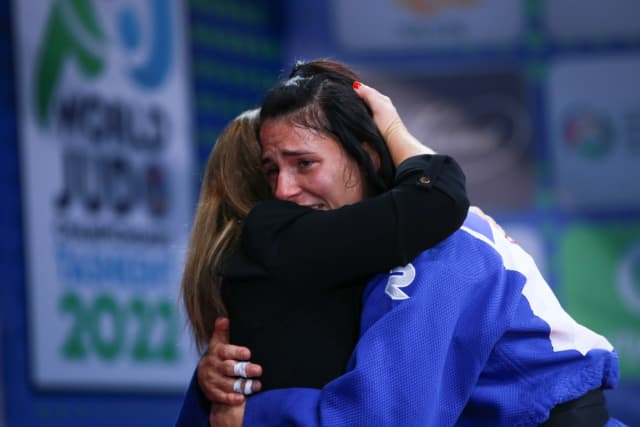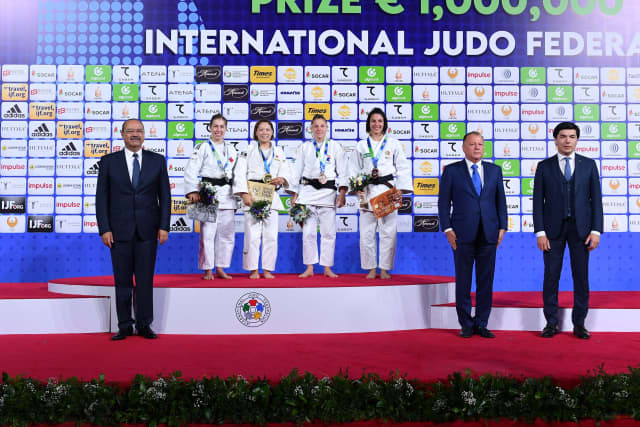Take, for example, the British and top seed Lucy Renshall, author of a season to frame. Between her good form and the most notorious casualties, because in addition to Agbegnenou, the Slovenian Trstenjak is not there either, Renshall had a good group in which to attempt the assault on the throne. That plan worked until the quarter-finals where the British was stopped cold by the Japanese Megumi Horikawa, who was also looking for her moment of glory, like the Portuguese Barbara Timo. Horikawa eliminated both of them, one after the other and entered the final.
On the other side of the board there was also ambition, which was soon decapitated, especially that of the Dutch Vermeer. France was represented by Manon Deketer but in the semi-final she fell with honours against someone stronger, the Canadian Catherine Beauchemin-Pinard. After Klimkait and Deguchi's shipwreck the day before, Beauchemin-Pinard offered Canada a first final. As for Horikawa, because Japan plays in another league, it was the chance to add a fifth gold to their Tashkent collection.
Horikawa broke on to the World Judo Tour ten years ago but she hasn't been talked about again until this year, with two grand slam victories. It is what is called a slow combustion but it has been worth it because in Tashkent she was by far the most complete, the strongest, the best. The same can be said of Beauchemin-Pinard, who won every round without flinching, without hesitation and who put up a tough fight in the final but one second from the bell, the Japanese showed what it means to be a champion and scored a dream ippon. The elite are like that, you can never lower your guard, doing so can cost you a world title.
Deketer, in her first world championship and representing the French delegation, Agbegnenou's team, had the consolation of bronze but before celebrating it she had to get rid of the Polish Angelika Szymanska. The good thing about Deketer is that she didn't have to wait long to learn the importance of such a tournament and she was unimpressed by the atmosphere. She went for the bronze in the best possible way, which is by scoring, in this case a waza-ari that threw the Pole off centre. It was amazing to watch the maturity of this youngster, how she controlled the pace and nullified all of Szymankas's offences. In reality, she looked like a veteran, who added a second medal for France after Amandine Buchard's bronze at -52kg.
Barbara Timo also wanted a bronze, like the Romanian Florentina Ivanescu; here nobody arrives unwilling. If they both looked at the previous match, then they understood that the best way to win is to walk forward, never backward. With her silver medal obtained three years ago, Timo presented a better resumé and entered the tatami as if she were the favourite. The Portuguese collected a waza-ri and a second shido against the Romanian. In other words, she had the wind behind her and only an unexpected disaster or Ivanescu's brutal resurgence could separate her from the medal. It was a resurgence that did not occur because Ivanescu was never up to Timo’s level. It’s a second world medal for her and the first for Portugal in Tashkent.

